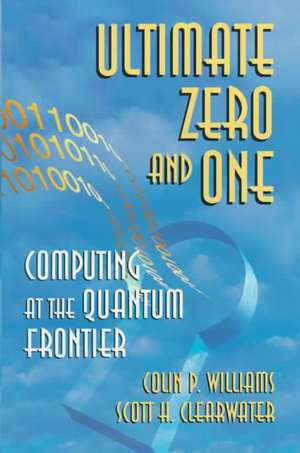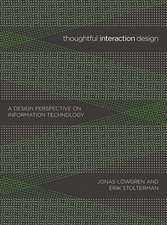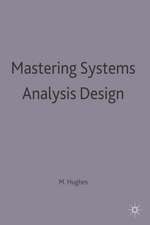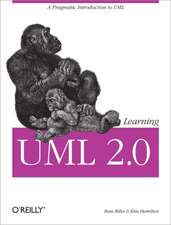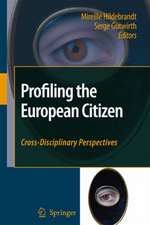Ultimate Zero and One: Computing at the Quantum Frontier
Autor Colin P. Williams, Scott H. Clearwateren Limba Engleză Hardback – 21 oct 1999
Preț: 187.33 lei
Preț vechi: 234.16 lei
-20% Nou
Puncte Express: 281
Preț estimativ în valută:
35.85€ • 37.33$ • 30.30£
35.85€ • 37.33$ • 30.30£
Carte disponibilă
Livrare economică 17 februarie-03 martie
Preluare comenzi: 021 569.72.76
Specificații
ISBN-13: 9780387947693
ISBN-10: 0387947698
Pagini: 250
Ilustrații: XIV, 250 p.
Dimensiuni: 155 x 235 x 25 mm
Greutate: 0.58 kg
Ediția:2000
Editura: Springer
Colecția Copernicus
Locul publicării:New York, NY, United States
ISBN-10: 0387947698
Pagini: 250
Ilustrații: XIV, 250 p.
Dimensiuni: 155 x 235 x 25 mm
Greutate: 0.58 kg
Ediția:2000
Editura: Springer
Colecția Copernicus
Locul publicării:New York, NY, United States
Public țintă
Professional/practitionerDescriere
As miniaturization deepens, and nanotechnology and its machines become more prevalent in the real world, the need to consider using quantum mechanical concepts to perform various tasks in computation increases. Such talks include: the teleporting of information, breaking heretofore "unbreakable" codes, communicating with messages that betray eavesdropping, and the generation of random munbers. To date, there has been no book written which applies quantum physics to the basic operations of a computer. This one does, thus presenting us with the ideal vehicle for explaining the complexities of quantum mechanics to students, researchers and computer engineers, alike, as they prepare to design and create the computing and information delivery systems for the future. Both authors have solid backgrounds in the subject matter at the theoretical and research level, as well as experience on a more practical plane. While also intended for use as a text for senior/grad level students in computer science/physics/engineering, this book has its primary use as an up-to-date reference work in the emerging interdisciplinary field of quantum computing. It does require knowledge of calculus and familiarity with the concept of the Turing machine.
Cuprins
1 Computing at the Edge of Nature.- • Rethinking Computers.- • Shrinking Technology.- • A Peek Into Quantumland.- • The Qubit: Ultimate Zero and One.- • Are Bits Driving Us Bankrupt?.- • An Overview of This Book.- 2 Quantum Computing.- • Tricks of the Trade.- • Quantum Memory Registers.- • The PREPARE-EVOLVE-MEASURE Cycle.- • Quantum Gates and Quantum Circuits.- • Example of a Quantum Computation.- • Summary.- 3 What Can Computers Do?.- • The Turing Machine.- • Quantum Turing Machines.- • Universality.- • Computability.- • Proving versus Providing Proof.- • Complexity.- • Searching a Quantum Phone Book.- 4 Breaking “Unbreakable” Codes.- • The Art of Concealment.- • Encryption Schemes.- • Public Key Cryptography.- • Code Breaking on a Classical Computer.- • Code Breaking on a Quantum Computer.- • Example Trace of Shor’s Algorithm.- • Summary.- 5 The Crapshoot Universe.- • The Concept of Randomness.- • Uses of Random Numbers.- • Does Randomness Exist in Nature?.- • Pseudorandomness: The Art of Faking It.- • The Plague of Correlations.- • Randomness and Quantum Computers.- 6 The Keys to Quantum Secrets.- • Some Underlying Concepts.- • Polarization.- • Quantum Cryptography with Polarized Photons.- • Working Prototypes.- • Other Approaches to Quantum Cryptography.- 7 Teleportation: The Ultimate Ticket to Ride.- • Factorizable Quantum States.- • Entanglement: Non-factorizable States.- • Spooky Action at a Distance.- • Bell’s Inequality.- • Locality: For Whom the Bell Tolls.- • Quantum Teleportation.- • Working Prototypes.- 8 Swatting Quantum Bugs.- • Laissez-Faire.- • Error Correction.- • Fault-Tolerant Computing.- • Topological Quantum Computing.- 9 Generation-Q Computing: Where Do You Want to Go Tomorrow?.- • Quantum Conditional Logic.- • Ion Traps.- • “Flying Qubit”-Based Quantum Computers.- • NMR.- • The Kane Mutiny.- • Summary.- 10 It Is Now Safe to Turn Off Your Quantum Computer.- • Quantum Interferometry: It’s All Done with Mirrors!.- • Quantum Bomb-Testing.- • Counterfactual Computing: Computing Without Computing.- Epilogue: Quantum Technologies in the Twenty-First Century.- References.
